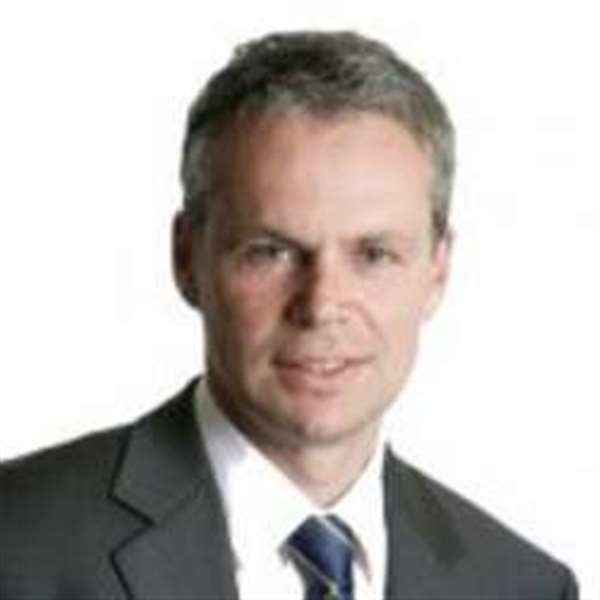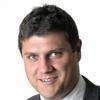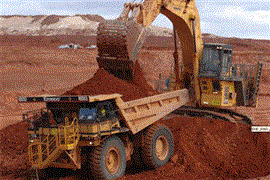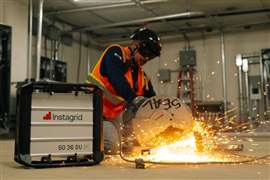Germany’s access rental market remains fragmented
31 October 2023
A consistent economic powerhouse, Germany struggles against long-standing headwinds in this sector, which sees its smaller neighbors poised for growth
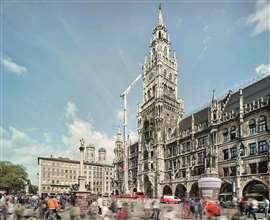 Germany has the fourth-largest economy in the world, but a fragmented access rental sector
Germany has the fourth-largest economy in the world, but a fragmented access rental sector
Access equipment is seeing a bright future in Central Europe, with the region’s largest market - Germany - demonstrating a unique take.
Other countries in the region, like Austria and Switzerland, have smaller markets in line with their geographical size. Countries to the east, for their part, have major potential for growth in access rental and are the base for new manufacturing facilities.
One of the most notable things about Germany, other than it is the world’s fourth-largest economy based on GDP, is its fragmented access rental sector, made up of many smaller and medium-sized rental outfits with a dedicated and loyal local customer base.
As such, the country is home to two rental company cooperatives that serve the access sector, namely PartnerLift and System Lift.
System Lift has more than 135 branches between its membership of more than 100 rental companies. Christopher Friedrich, the marketing manager of System Lift, says the German market is still growing - thanks to regulations on the environment, and expansion in areas like solar and wind energy.
Its total access fleet stands at around 20,500 units and is growing by 5% per year. The cooperative concept remains attractive to rental companies, as it protects their interests. In fact, System Lift will be concentrating on its core areas of business, namely MEWPs, telehandlers and significantly, operator training, as it seeks to tackle one of the major challenges of the modern industry, the lack of skilled labor.
Taking advantage of fragmented access market, Kiloutou recently acquired German access rental company UKA+Hauke Arbeitsbühnen for an undisclosed price. The company rents aerial platforms and telehandlers from four locations in central Germany.
Kiloutou said the addition of UKA+Hauke would strengthen its coverage around Erfurt, Chemnitz and Dresden, and take its network to 18 locations in Germany.
Nils Altrogge, managing director of Kiloutou Germany, said the deal was a “milestone” for the business in German.
“With the new locations in the high-potential and dynamic German states of Thuringia and Saxony, we are increasing our market penetration in the east and consistently pursuing our philosophy of local customer proximity,” he said.
German economy sees headwinds
This is in contrast to the German economy, which is set to drop this year along with much of the rest of Europe. The country is suffering with the well-documented rises in inflation and interest rates.
According to the European Commission, Germany is set to see a 0.4% contraction this year – the worst performance in the Eurozone.
Charky Kunze, CEO of Kunze, a major distributor of niche access equipment in Germany, says many of the small to medium family-owned companies in Germany are now being acquired by international players.
“The older generation is starting to retire and this will see a change in the market. Step by step, the big rental companies will take a larger market share.”
Looking at the German market there is plenty of room for growth, according to Kunze, as the population of MEWPs is concentrated to a large extent in the large urban areas, with outlying areas still relatively immature in the access industry.
One of the items on Kunze’s stand at Platformers’ Days, where Access International spoke to the company, was the new Heron 10 from Platform Basket – the spider lift specialist’s first vertical mast lift. The unit’s designed to be lightweight, with outriggers, and complements the spider range.
Looking at the more general access equipment market, Mateco, Europe’s second-largest access equipment rental company, has central European operations in Germany, Switzerland, Poland, Czech, Hungary and Slovakia.
In all of these markets, Mateco has a leading market position, except for Switzerland, which the company has just entered.
There is a big difference between these markets, says the company. As we have heard, “Germany is a mature market with a lot of local, strong, family-run businesses which are very successful in the region where they are operating.”
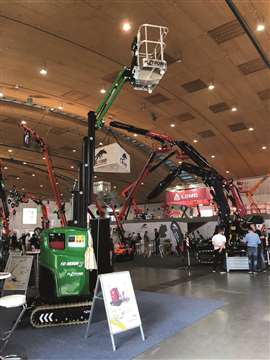 The new Heron 10 is the first vertical mast lift from Platform Basket
The new Heron 10 is the first vertical mast lift from Platform Basket
And to reiterate another point, “In Germany, you also see some transactions happening where these family businesses are being sold because of succession, mainly.
Germany is also a market that is strongly dominated by specialist companies, versus other markets like France and Scandinavia, where the generalist companies are more dominant.
“In the other, more Eastern countries,” says Mateco, “the market is less mature, and here you have a mix of Western companies investing in these markets but also local players with some multi-depot companies.”
In addition, there are also very local, less-professional companies working from a single depot, mainly with used machines.
In these markets there is less activity in mergers and acquisitions, as there are not yet companies with succession issues, “but this is of course, only a matter of time,” adds Mateco.
In the more Eastern countries, Mateco also notes that the average rental period is getting shorter, which is bringing them closer to the average seen in the western-based countries.
Coming back to the mature markets, “In Germany and Switzerland, we have a more stable situation with more steady results, whereas in the more Eastern countries there is more fluctuation and some over-reaction on the pricing when the markets are going down or are in a positive mood.”
Historically, Germany and Switzerland have also a big market of van- and truck-mounted MEWPs. They are not so popular in the Eastern countries but with a growing trend.
Market remains fragmented
One thing is for sure, Mateco has a clear commitment to expansion in all the countries, while keeping its fleet younger than the average in each of the markets.
“We are also investing heavily in our own real estate, as we believe this is important for the long-term future to operate safe and professionally. It also helps to attract and motivate good people.”
Kai Schliephake is the CEO of Germany’s other major access rental company cooperative, Partnerlift. The organization has 135 depots among its 105-plus member companies, many of them family owned with anywhere between 50 and 150 units in their fleets, operating from a single depot.
Schliephake believes the rental market in Germany will remain fragmented. The international majors, says Schliephake, “really struggle to compete with the small companies in Germany that have very close relations and good direct technical knowledge.”
He adds, “People told me 25 years ago there would be consolidation with 10 major players in the country, but that has not happened.”
Schliephake goes on to explain that while those who live outside of Germany are aware of major manufacturers such as BMW, Mercedes, Volkswagen and Siemens, and the likes of Liebherr in
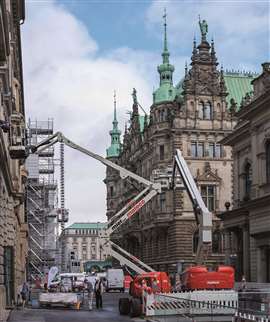 Mateco has a clear commitment to expansion in all of the countries it serves
Mateco has a clear commitment to expansion in all of the countries it serves
the construction industry, these companies do not represent the real economy in the country.
“The big companies are not the biggest employers overall,” he said. “There are many hidden champions that are the strength of the German economy. That is reflected in the access market.”
Compare that to next-door neighbor Austria, says Schliephake, where the top three rental companies, all international, have around 80% of the fleet market share.
And taking into consideration more eastern-based countries, as a generalization, Schliephake says there is major growth potential for the access industry as the countries become more mature.
“Eastern Europe still has room for improvement. There is still a lot of scaffolding and ladders there,” Schliephake said.
Poland, which historically is included as one of the eastern countries in Europe, is seeing major infrastructure investment. It is planning to build what has been billed as the country’s largest airport and one of the largest in Europe in Baranow County, near Warsaw.
The project involves building a passenger terminal, railway stations and transport hub. It will initially be able to handle 40 million passengers a year.
In September last year, the company developing the $8-billion hub between Warsaw and Łodz, Centralny Port Komunikacjny (CPK), launched a search for a company to oversee the technical accuracy of designs by the lead architect and civil engineer.
Time of transition
Schliephake does believe all the markets are changing. He says it could be a matter of time before a major Chinese manufacturer buys a major European rental company with the view to channeling its equipment into the market.
This is combined with the fact that the exchange rate between the dollar and Euro is currently unattractive to US-based producers, meaning they are holding back from the European market, says Schliephake.
Zeppelin Rental is based in Germany and operating in its home country, as well as Austria, the Czech Republic, Slovakia, Denmark and Sweden.
The generalist rental company, with a fleet of around 4,000 aerial platforms across 160 locations, identifies the decline in the building construction market and the shortage of skilled workers as its main challenges.
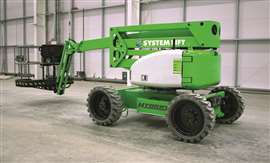 System Lift has over 135 branches between its membership of more than 100 rental companies
System Lift has over 135 branches between its membership of more than 100 rental companies
“We are trying to counter the shortage of labor with extended training possibilities for our staff,” the company states, noting it recently opened a new training center in Germany to impart industry-specific knowledge.
But rather than inside the strict parameters of Central Euope, Zeppelin is seeing the greatest potential, at the moment, in the Nordic markets.
“Nevertheless our operations in Denmark and Sweden are still in the process of being established. The German market is slightly growing, but the circumstances are more difficult,” the company stated.
Right now, Zeppelin is not planning any major expansions as far as new locations are concerned.
“We are, of course, constantly examining opportunities depending on the market situation. For example, we just opened our third rental store in Praha, Czech Republic, which is also offering access equipment.”
STAY CONNECTED



Receive the information you need when you need it through our world-leading magazines, newsletters and daily briefings.
CONNECT WITH THE TEAM
